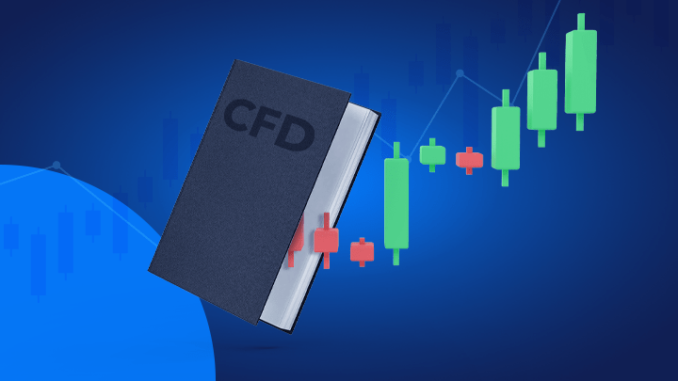
📘 Understanding CFDs: Contracts for Difference
What is a CFD?
A Contract for Difference (CFD) is a financial instrument that allows you to speculate on the rising or falling prices of fast-moving global markets (such as shares, forex, indices, commodities, or cryptocurrencies) without actually owning the underlying asset.
🔍 How CFDs Work:
- You buy (go long) if you expect the asset’s price to rise.
- You sell (go short) if you expect it to fall.
- Your profit or loss is based on the difference between the opening and closing price of the position.
📈 Markets You Can Trade With CFDs:
- Stocks
- Forex
- Commodities (Gold, Oil, etc.)
- Indices (e.g., NASDAQ, FTSE 100)
- Cryptocurrencies
⚖️ Benefits of CFD Trading:
- Leverage: Open larger positions with less capital.
- Short Selling: Profit in both rising and falling markets.
- Diverse Access: Trade global markets from a single platform.
- No Physical Ownership: Avoid complications of asset delivery or custody.
⚠️ Risks to Consider:
- Leverage Amplifies Risk: While it can increase profits, it also increases losses.
- Market Volatility: Sudden price changes can lead to large losses.
- Overnight Fees: Charges apply for holding positions overnight.
- No Ownership Rights: You don’t receive dividends or voting rights.
💼 Choosing the Right Broker: Why It Matters
Picking a reliable CFD broker is critical for your trading success. Here’s why:
- ✅ Tight Spreads: Brokers with incentivized or low spreads allow you to enter and exit positions at more favorable prices, reducing your trading costs.
- ✅ Regulation & Security: Make sure the broker is licensed and regulated by a reputable financial authority (e.g., FCA, ASIC, CySEC).
- ✅ Execution Speed: Fast trade execution minimizes slippage, especially in volatile markets.
- ✅ Trading Platform: User-friendly and feature-rich platforms enhance your trading experience.
We recommend choosing a good broker that provide competitive spread such as Exness to save on the costs of opening positions.
📝 Key Terms to Know:
- Spread: The difference between the buying (ask) and selling (bid) price.
- Margin: The deposit required to open a leveraged position.
✅ Is CFD Trading Right for You?
CFD trading offers flexibility and exposure to various markets with relatively low capital, but it’s not without risks. If you’re confident in your market knowledge, risk management, and have chosen a trustworthy broker with fair spreads, CFD trading can be a powerful tool in your financial strategy.
